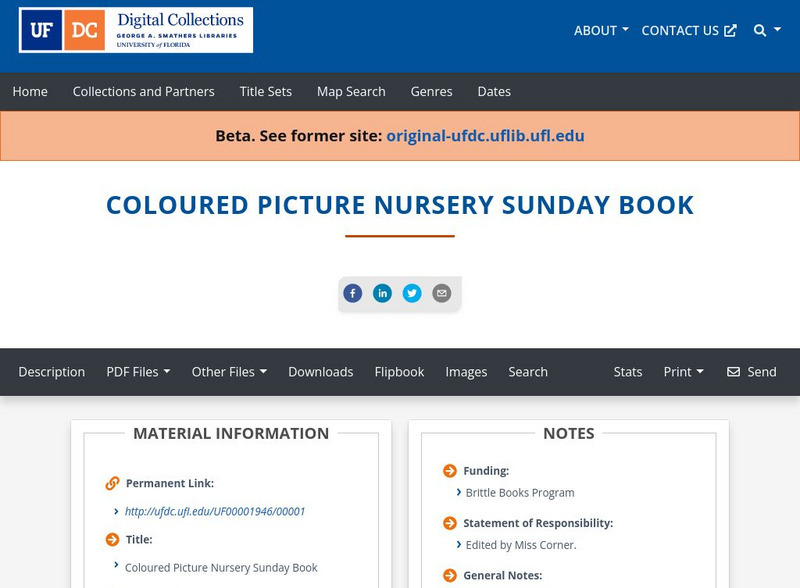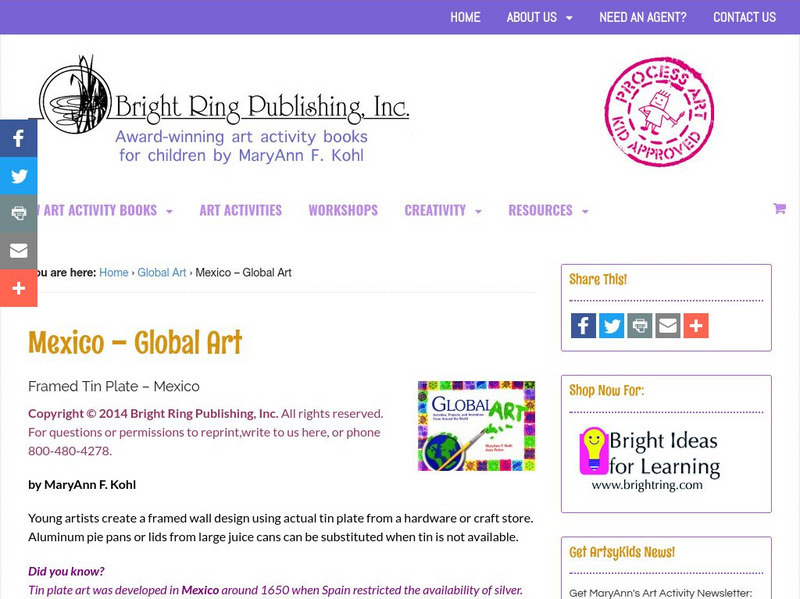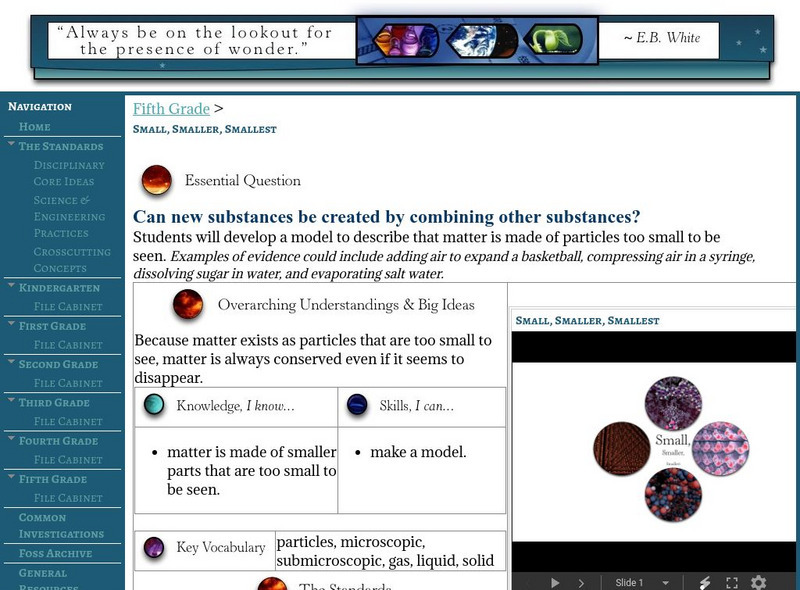Utah Education Network
Uen: Nhmu: Birds Will Be Birds
Analyze the physical characteristics of 12 different birds and consider how this enables them to survive in their individual habitats.
University of Florida
Baldwin Library: The Army With Banners
A scanned copy of the 1852 publication of The Army with Banners, a fiction book for children.
University of Florida
Baldwin Library: Buds and Blossoms From Our Own Garden
A scanned copy of the 1852 publication of Buds and Blossoms from our Own Garden by Francis Channing Woodworth, a book of stories for children.
University of Florida
Baldwin Library: The Coloured Picture Nursery Sunday Book
A scanned copy of the 1852 publication of The Coloured Picture Nursery Sunday Book, a book of Bible stories for children.
Smithsonian Institution
The Fabric of Moroccan Life Urban Textiles and Costumes
For hundreds of years, Moroccan women have composed fine embroideries and rugs using intricate designs that have been passed down through generations. View these exquisite textiles with large detailed images.
Other
Kitikmeot Heritage Society: A Magical Journey to Visit Angulalik
We travel with Roy from Inuvik as he travels to visit his cousin in Cambridge Bay on Victoria Island. Along the way we learn about the culture of the Copper Inuit.
Carnegie Museum of Natural History
Carnegie Museum of Natural History: Lewis and Clark
This resource describes how Lewis and Clark described various animals two centuries ago.
Other
Herald Tribune: Venice Man Told He's a Descendant of 400 Year Old 'Lost Colony'
An interesting article that discusses a possible genetic link between a man named Lawrence Berry who could be a descendant of the lost Roanoke Island colonists. It explains some history of the colony, possible theories about the...
Alabama Learning Exchange
Alex: Genre Who? Identifying Various Fiction Genres
In this lesson young scholars will be introduced to six different fiction genres. They will then practice their knowledge of these genres through a review game.
Cuemath
Cuemath: Geometric Shapes
In this mini-lesson, you will learn about the definition of geometric shapes and view many examples. You can check out the interactive simulations to know more about the lesson and try your hand at solving a few interesting practice...
American Forum for Global Education
American Forum for Global Education: How Many Systems Do I Belong to Right Now?
This site is provided for by the American Forum for Global Education. Using the concept of belonging to groups, children come to understand the concept of economics as it applies to "People Systems", or interdependence and cooperation.
University of Florida
Baldwin Library: Every Boy's Book of Games
A scanned copy of the 1852 publication of Every Boy's Book of Games, a book of puzzles, games, and leisure activities for children.
EL Education
El Education: Blueprints With Four Drafts
These four drafts of architectural blueprints were created by a 5th/6th grade student from Shutesbury Elementary School, in Shutesbury, Massachusetts, as part of a Learning expedition on Architecture.
Other
Global Art: Framed Tin Plate
Add this art idea to your list of multicultural activities. Inspired by the Mexican tradition of tin punching this lesson gives some ideas for good cheap tin alternatives.
Other
Learn English Feel good.com: Frequently Misspelled Words
Build spelling skills by choosing the correct spelling of these ten commonly misspelled words.
National Academies of Sciences, Engineering, and Medicine
National Academies Press: Small, Smaller, Smallest
View these slides to better understand that matter is made of smaller parts that are too small to be seen. These slides can be used to meet math, science, and literacy standards.













